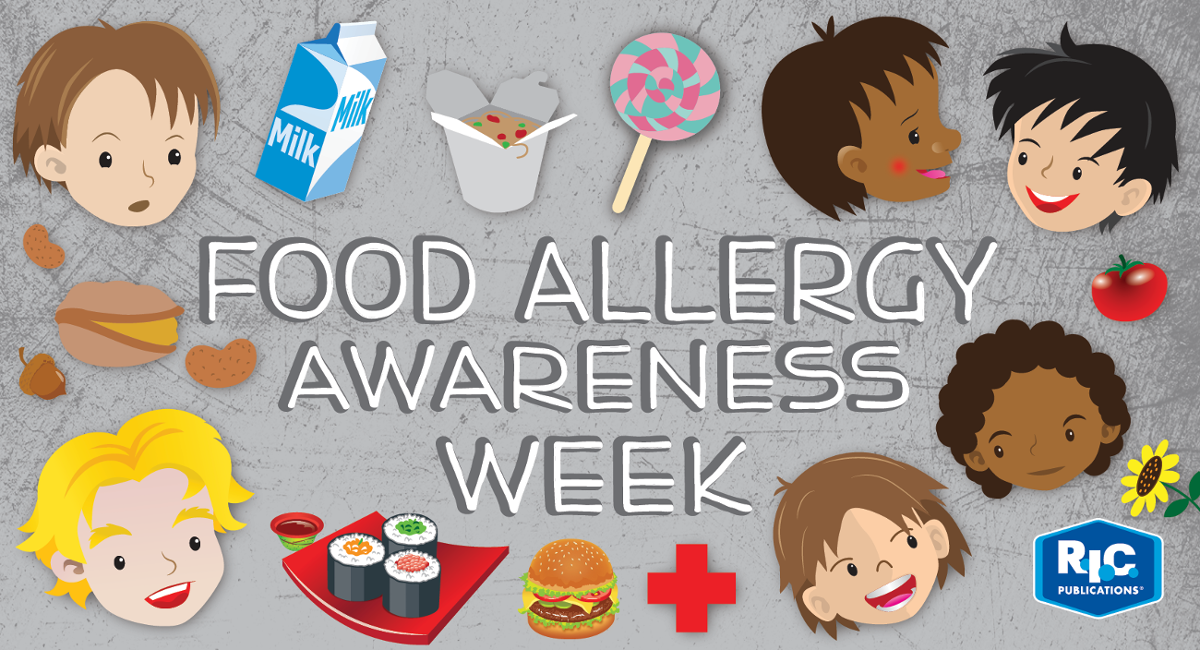- Monday 27 May 2019
- 0 Comments
According to https://www.foodallergyaware.com.au/, 'Food Allergy Week (FAW) aims to raise awareness of food allergy including potentially fatal food allergies. Allergy & Anaphylaxis Australia (A&AA) is calling on all Australians to unite during Food Allergy Week from 26 May – 1 June 2019, and for individuals to Be Aware. Show You Care.’
Although not completely understood why, research shows that food allergies are becoming increasingly more prevalent in children which has resulted in larger numbers of students at school presenting with allergies.
The most common food products that trigger people with allergies include: egg, cow’s milk, peanut, tree nuts, sesame, soy, fish, shellfish and wheat. As many processed food products contain these ingredients or are made using the same machinery as these products, the chances that students may be exposed to them during recess/lunch breaks can be quite high.
Five essential tips
- Ensure all students, teachers, education assistants, relief and administration staff are aware of students with identified food allergies. Reactions can occur at any time and therefore it is vital that students/staff can assist with identifying when an allergic reaction may be occurring and how to seek emergency assistance if necessary. Signs and symptoms at https://youtu.be/e19iGP33YNA
- Establish an 'Allergy aware' display board with the names of students who have food allergies and what they are allergic to, as well as a recent photograph of the student and common signs and symptoms of a reaction.
- Write/Review and discuss risk management plans/emergency care plans for students with food allergies, including where medication is located, parent/guardian contact details and what to do in case of emergency.
- Ensure staff are trained in administering epinephrine (adrenaline) to students who are at risk of anaphylaxis. Students with severe food allergies should carry an EpiPen(R), Anapen or similar adrenaline auto-injector with them at all times. See how to give an EpiPen(R) at https://youtu.be/Zmt-cI1ZIYE. Note: A free online course titled ‘ASCIA anaphylaxis e-training first aid (community)’ is available at https://www.allergy.org.au/patients/anaphylaxis-e-training-first-aid-community.
- Teach students in your class about food allergies and how to identify different food products, including the ingredients contained in different packaged foods. Explore food packaging labels to identify the ingredient list and food allergy awareness information and teach students how to make allergy-aware decisions.
For a full range of Anaphylaxis resources, go to https://www.allergy.org.au/anaphylaxis. Find the Anaphylaxis training for your state on the list below:
- NSW: My portal - Esafety - to access training
- Vic.: https://www.education.vic.gov.au/school/teachers/health/Pages/anaphylaxisschl.aspx
- WA - Guide with PDF: https://www.education.wa.edu.au/policies/detcms/cms-service/download/asset/?asset_id=14127696
- QLD: https://education.qld.gov.au/student/Documents/anaphylaxis-guidelines-for-queensland-state-schools.pdf#search=anaphylaxis
- SA: http://bit.ly/2X5XIBD
- Tas.: https://www.education.tas.gov.au/parents-carers/parent-fact-sheets/allergies-asthma/
- Canberra - Under first aid policy: https://www.education.act.gov.au/publications_and_policies/policies
Related Tags:
Related Posts:
